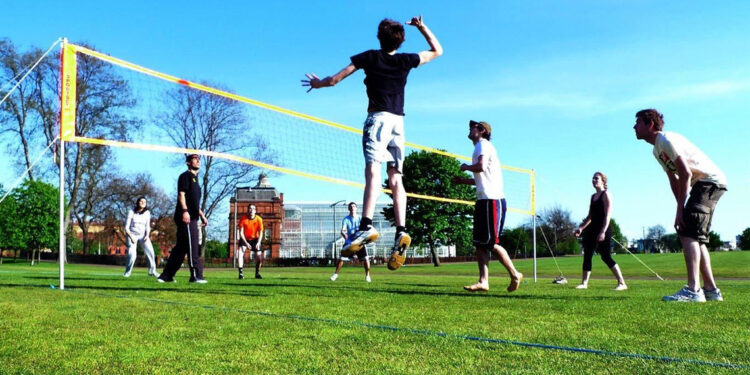In the fast-paced world of sports, daily predictions have become a staple for fans, punters, and fantasy players alike. From football and basketball to tennis and cricket, predicting match outcomes, key performances, and strategic plays offers both excitement and potential rewards. However, with so many variables in play, accurate predictions require more than just luck—they need insight, trends, and strategy.
Here are essential tips to watch out for when making daily sports predictions, whether you’re a casual fan or a seasoned bettor.
1. Stay Updated with Team News and Injuries
One of the most crucial aspects of accurate sports predictions is knowing the current condition of teams and players.
Key things to monitor daily:
-
Injuries or last-minute lineup changes
-
Suspensions or player fatigue
-
Managerial changes or internal club issues
Example:
If a star striker in a football team is out with an injury, the team’s scoring chances drop dramatically, influencing both the win probability and over/under goal predictions.
2. Check Historical Head-to-Head Records
Some teams just seem to have the upper hand over certain opponents, regardless of current form.
What to analyze:
-
Past 5 to 10 matchups between the teams
-
Win/draw/loss records
-
Home vs. away performance trends
Why It Matters:
Even if one team is in top form, history sometimes repeats itself—especially in derby matches or long-standing rivalries.
3. Consider Weather and Venue Conditions
External factors like weather and venue can greatly influence the outcome of games.
Sports affected most:
-
Cricket (rain and pitch condition)
-
Football (wet grounds reduce pace)
-
Tennis (outdoor court speed affected by humidity)
Example:
A football match in heavy rain may result in fewer goals due to slower ball movement and slippery turf, making “under 2.5 goals” a safer bet.
4. Use Reliable Sports Analytics Platforms
Don’t rely solely on gut feelings. Leverage platforms that offer stats, simulations, and expert predictions.
Popular tools and sites:
-
FiveThirtyEight (for probabilities)
-
SofaScore and WhoScored (live stats and player ratings)
-
Flashscore or Livescore (real-time updates)
What to Look For:
-
xG (expected goals) stats
-
Player form over last 5 matches
-
Possession percentages and shot conversion rates
5. Follow Betting Market Movements
Betting odds are adjusted based on how much money is placed on certain outcomes. These shifts can reveal what insiders or heavy gamblers are predicting.
How to use this:
-
Watch for sudden drops in odds
-
Compare opening vs. current lines
-
Observe public vs. sharp money (where professional bettors are placing wagers)
Caution:
Market movement doesn’t guarantee outcomes—but it’s a helpful indicator of how the global audience is leaning.
6. Avoid Betting on Too Many Events
If you’re using predictions to place bets or enter fantasy leagues, less is often more.
Smart Strategy:
-
Focus on 2–3 events daily
-
Study them thoroughly instead of blindly predicting 10+ games
-
Specialize in one sport or league for better accuracy
Why It Works:
Concentration boosts research quality and prediction success rates.
7. Watch Pre-Game Press Conferences
Often overlooked, pre-game interviews and pressers reveal player motivation, tactical hints, and emotional states.
What to look out for:
-
Team goals or expectations
-
Comments on fitness and rotation
-
Mentality toward the upcoming match
Example:
A manager hinting at “testing young players” could mean a weakened squad, affecting win/loss odds dramatically.
8. Identify “Trap Games” and Overhyped Odds
Sometimes the better team doesn’t win—and oddsmakers know it.
What’s a trap game?
A match where a top team faces an underdog, but the favorite is distracted, resting players, or focused on a future match.
Tip:
Be cautious of odds that seem “too good to be true.” If everyone is backing one side, it might be a red flag.
9. Leverage Social Media for Real-Time Updates
Twitter/X, Instagram, and Reddit communities often report news faster than official channels.
Accounts to follow:
-
Verified team journalists
-
Fan pages with insider access
-
Fantasy sports experts and live injury updates
Why It’s Useful:
You can get last-minute info—like a player pulling up in warm-ups—before the market reacts.
10. Use Your Own Prediction Tracker
Over time, keeping track of your daily picks helps identify trends in your decision-making.
What to include in your tracker:
-
Date and sport
-
Pick and result (win/loss/draw)
-
Reason for pick
-
Outcome vs. expectation
Benefit:
Self-reflection improves prediction accuracy. You’ll start seeing which factors help you the most (e.g., player form vs. team news).

















